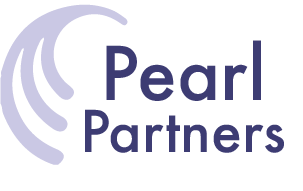A couple of years ago, I was at a conference which focused on the overlaps between design, business, and other organizational disciplines. It was kicked off with a discussion led by Dr. Richard Farson, who cautioned that the design profession is at risk of devaluing itself as a profession. His argument was that anyone who was in the business of executing tasks that clients ask for is not a true professional, regardless of how skilled they are at their craft. A true professional, Farson stated, is a person who works with a client to achieve a goal, and tailors their tasks to realize that goal. If you don't do that, you are in the business of taking orders, which is a much less valuable endeavor.
He then went on to give the example of Frederick Law Olmsted. For those who don't know, he was the famed landscape designer in the 1800's who designed Central Park in NYC, the Emerald Necklace in Boston, and many, many others. Farson stated that if you think Olmsted's greatest achievements are that he designed lots of beautiful parks, "…you've totally missed the point of his role as a professional." He said that Olmsted was a true professional who was working with community leaders to create egalitarian communities where the environment encouraged people to gather together, and used his skill in landscape design toward achieving that purpose. That his parks are still achieving those goals today is a testament to his success as a professional.
I mention this story because it applies not only to design, but to people from any discipline. The world is full of people who are happy to "take orders" from their clients or employers. Why? Being a professional means taking responsibility for doing work that helps an organization to achieve their goals. The client may have an idea for how this should be done, and a professional has to be able to say why those suggestions will or will not work. Yes, a professional sometimes has to say no. And good clients and employers will respect this professional opinion far more than the constant yes of an order taker. This type of relationship requires integrity, trust, and respect for the ultimate purpose that is driving any work that will be done. It is not as easy, but is infinitely more rewarding.
Today, we need more people to step up to the plate and take responsibility for how their professions can help our organizations to achieve their goals. It is easy to point fingers at the leaders who have failed to point our work in the right direction. But I wonder, how many people out there had a chance to influence what was happening, and instead chose to just do what they were told? And on the other hand, how many leaders chose not to listen to those who did step up to deliver a message they may not have wanted to hear?
